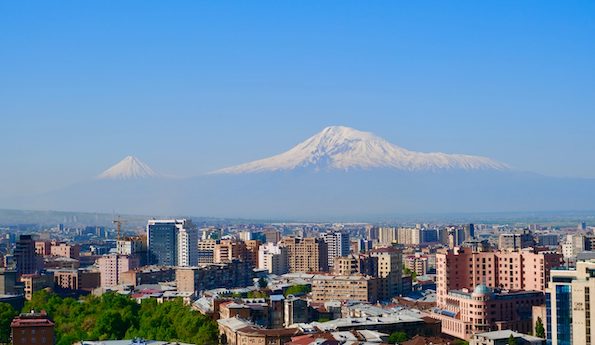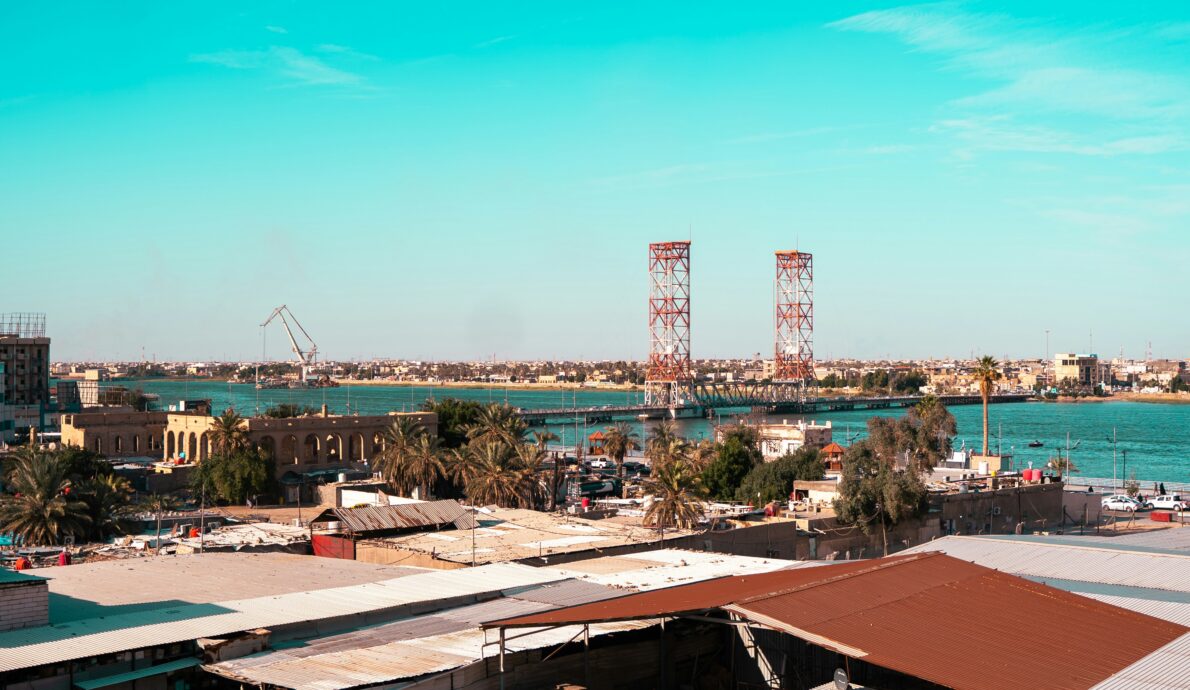Civil society organizations around the world help to fill the gap between government officials and the people. They represent local interests and, when successful, can effectively advocate for change with stakeholders, bringing all parties to the table to help improve lives. Armenia’s fledgling civil society is still in a nascent stage after years of civil unrest, during which the reputation of civil society overall suffered and relationships between the government and local stakeholders broke down. Since 2022, Counterpart’s Civil Society in Action program, funded by USAID, has worked with local partners to boost civil society organizations through strengthened organizational development. Ensuring that all voices are included and heard, our support provides the training, tools, and financial resources needed to enable these organizations to help citizens thrive.

Diana Ter-Stepanyan, the project’s monitoring, evaluation, and learning manager, leads a monitoring and evaluation training for civil society organizations in June 2024.
Magda Avetisyan, Civil Society in Action’s chief of party, tells us that “a vibrant civil society in Armenia includes the active participation of people in decision making process. We are helping to strengthen the capacity of civil society in order for them to become a liaison between the people and the government and have their input in the decision making for the people of this country.”
Counterpart defines a vibrant civil society as having five key elements:
- Active participation: Citizens actively engage in community activities, public discussions, and decision-making processes.
- Inclusivity and diversity: Ensuring that all voices, including those of marginalized groups, are heard and respected.
- Educational opportunities: Widespread access to education that encourages critical thinking, civic responsibility, and social awareness, and fosters an informed citizenry.
- Transparency and accountability: Government institutions effectively implement their transparency measures and are held accountable for their actions.
- Collaboration: Strong partnerships between the government, private sector, and civil society organizations to address social issues.
Together, these components create a dynamic and resilient civil society that can effectively advocate for and implement positive changes.
Narek Varshamyan, president of Ijevan Info Tun, an organization aimed at helping youth access greater educational opportunities in rural Armenia, shares his experience as one of Counterpart’s partners and reflects on how this partnership has helped Ijevan Info Tun to have a greater impact on their constituents, “although we are a young organization, during the last years we have been able to develop strong relationships in the community both with public and non-governmental bodies, as well as business actors and active citizens. We have been able to initiate focus group discussions aiming to help solve community problems.”

Narek Varshamyan, president of Ijevan Info Tun, presents during a communications training for the Civil Society in Action subgrantees in September 2024.
Counterpart works with civil society organizations across geographic regions and sectors, partnering with groups focused on disability issues, women’s issues, youth issues, environmental issues, and more. It is important to equip this diverse range of civil society actors with the skills necessary to make meaningful contributions to the public discourse. And, as Anna Avagyan, deputy chief of party for the project, points out that this is a two-way street and requires government to solicit the feedback of civil society as well. She says, “We don’t want to see governments making their decisions and coming to civil society after the fact. Our goal is to engage civil society organizations from the beginning of the process.”

Civil society organizations participate in a training session developed following an assessment of their organizational capacity within the Civil Society in Action project.
Diana Ter-Stepanyan, the project’s monitoring, evaluation, and learning manager, has seen improvement in the partners over just the first two years, but recognizes their ability to leverage new relationships with government representatives and decision makers will be key to their ongoing success. “I would like to see that organizations are more mature and have more capacity to engage in dialogue with local government and national government, to advocate for and represent the interest of their beneficiaries.” Philip Hovhannisian, the grants manager, echoed that sentiment, sharing that one significant success has been that the civil society partners are now working with government and in talks to secure their own funding, which is a positive step towards achieving long term sustainability.
Perhaps the biggest impact so far is the confidence that the civil society partners have gained, and the understanding of the critical role they play in helping to shape the future of Armenia. Varshamyan from Ijevan Info Tun best sums it up in his vision for the future: “I would like to see a stronger civil society…part of all processes in Armenia, starting from the local government up to national level. We are a young democracy, and a strong civil society is a key part of supporting democracy in Armenia.”






